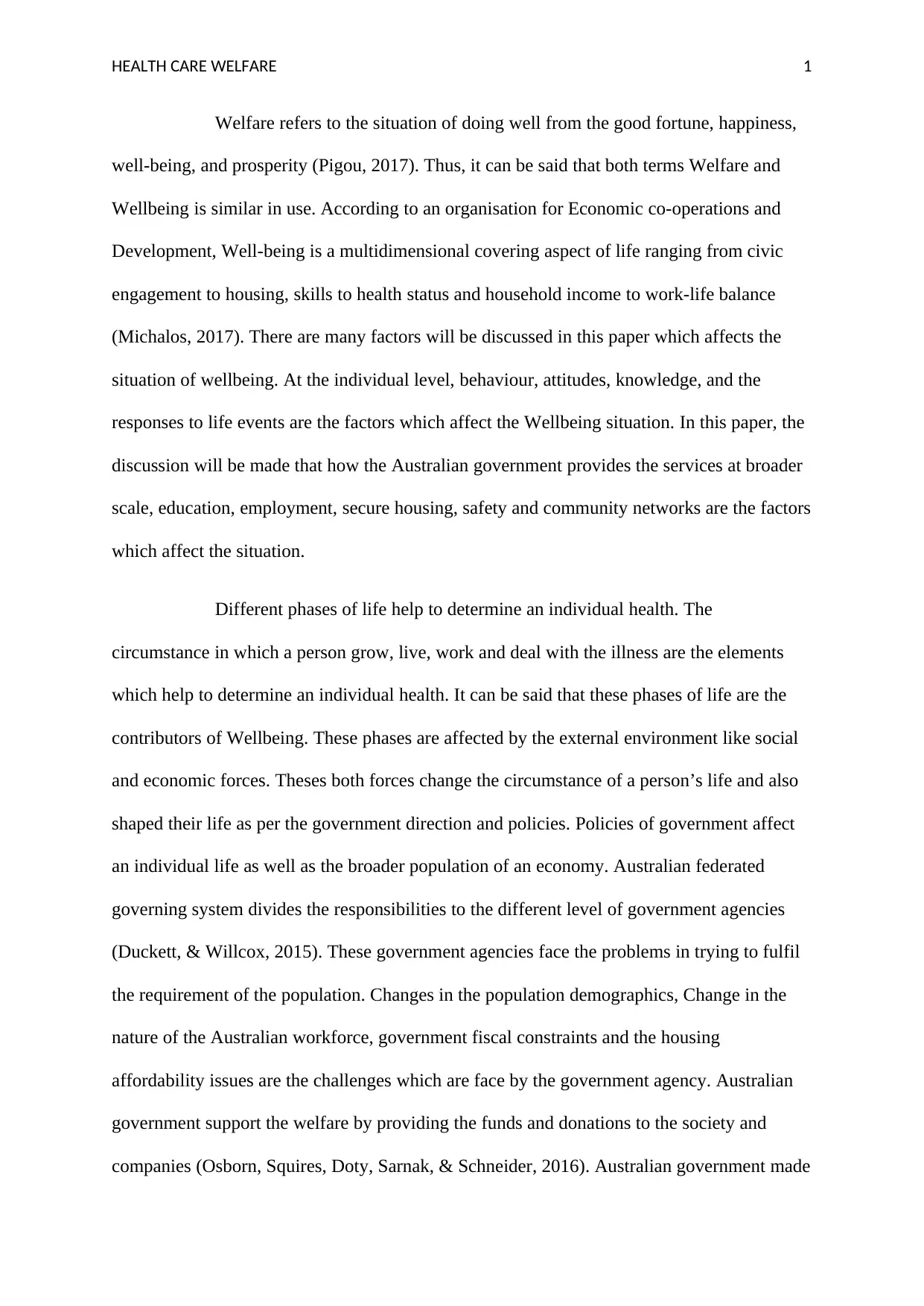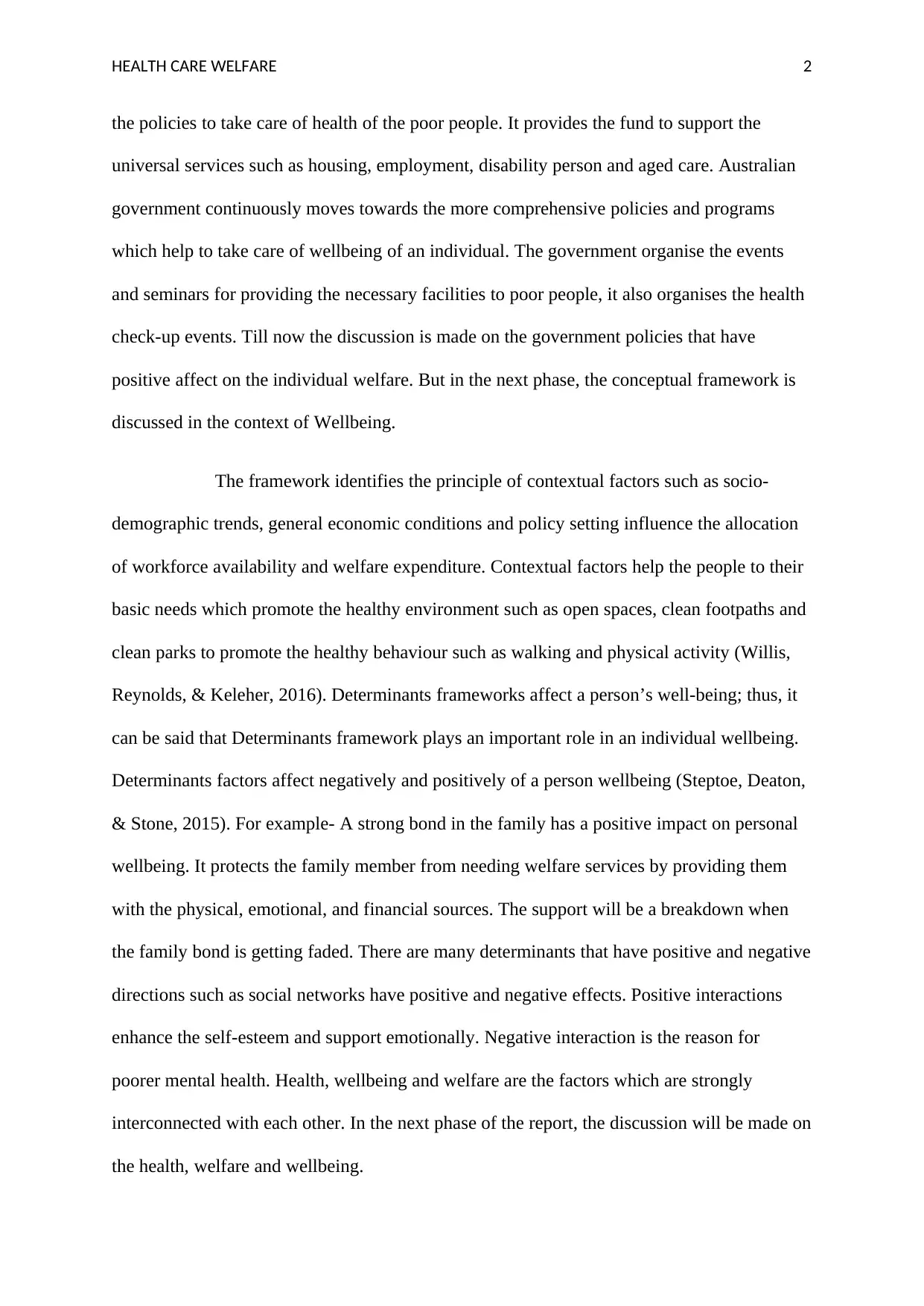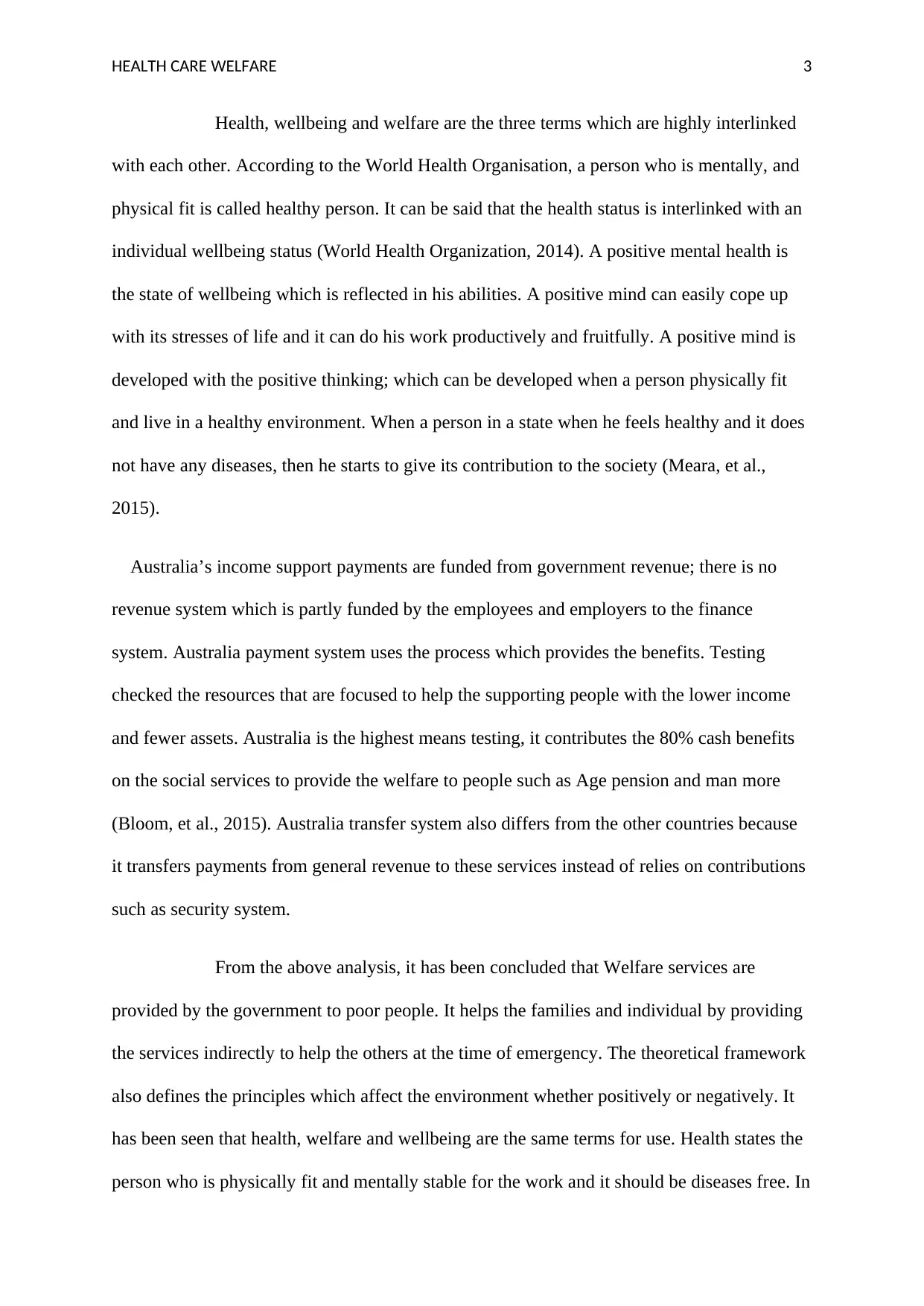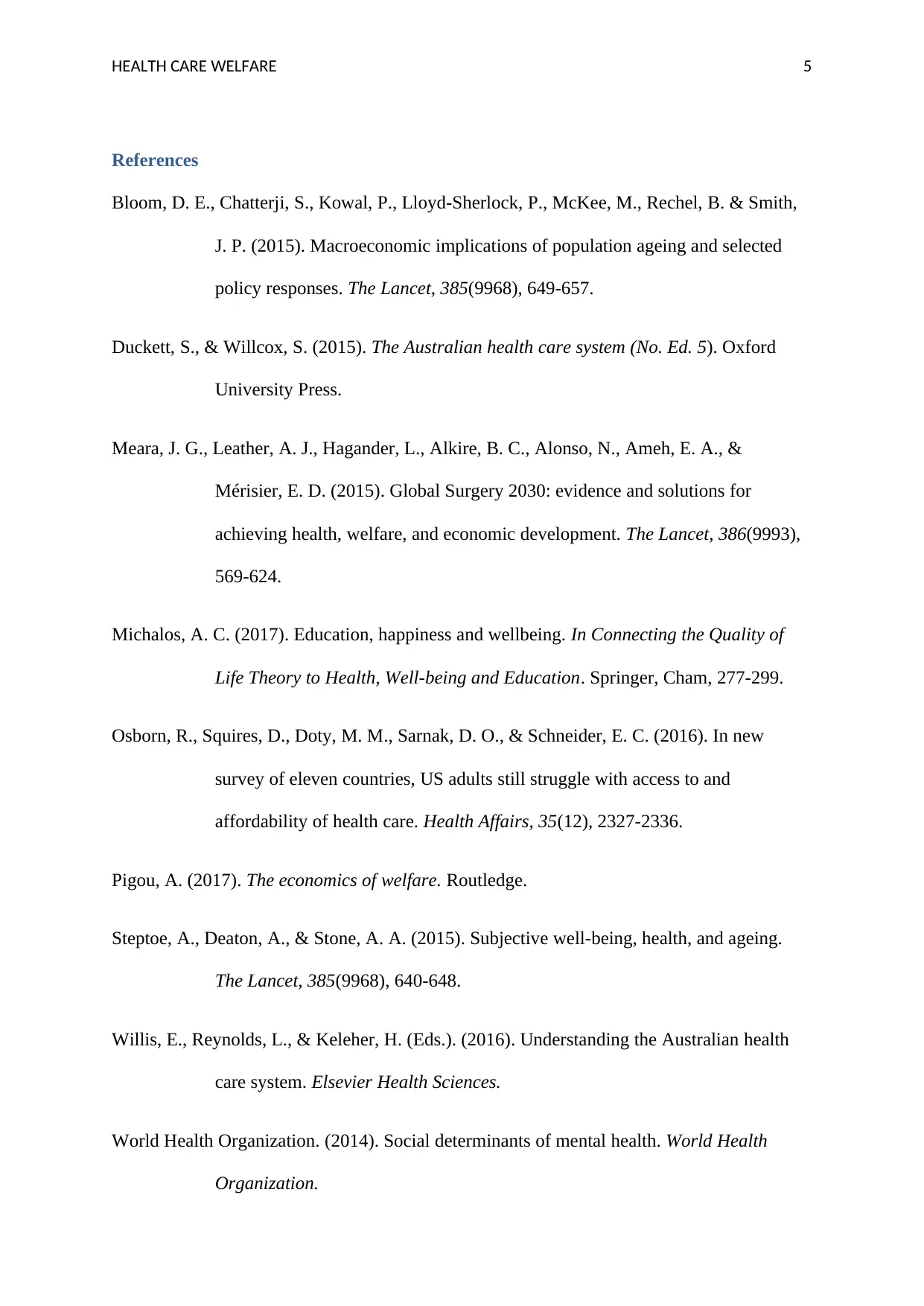SAP102: Detailed Analysis of the Australian Welfare System
VerifiedAdded on 2023/06/07
|7
|1525
|249
Essay
AI Summary
This essay analyzes the Australian welfare system, focusing on its impact on healthcare, wellbeing, and social services. It examines how government policies, including funding and donations, affect individuals and the broader population. The essay explores the interconnectedness of health, wellbeing, and welfare, referencing the World Health Organization's definition of health. It also discusses the Australian income support system, means testing, and the differences in its transfer system compared to other countries. The essay uses a theoretical framework to analyze the contextual factors, such as sociodemographic trends and economic conditions, that influence workforce availability and welfare expenditure. It also provides an overview of the challenges faced by government agencies in providing welfare services, such as changes in population demographics and fiscal constraints, and concludes with a summary of the key findings.
1 out of 7













![[object Object]](/_next/static/media/star-bottom.7253800d.svg)